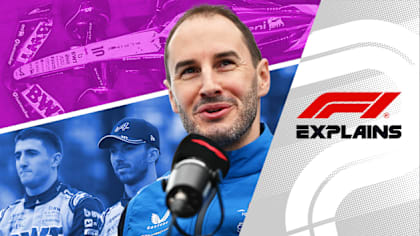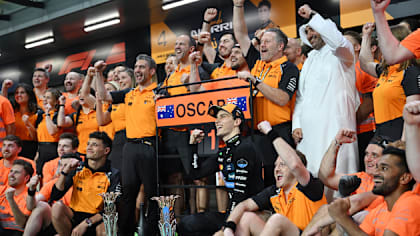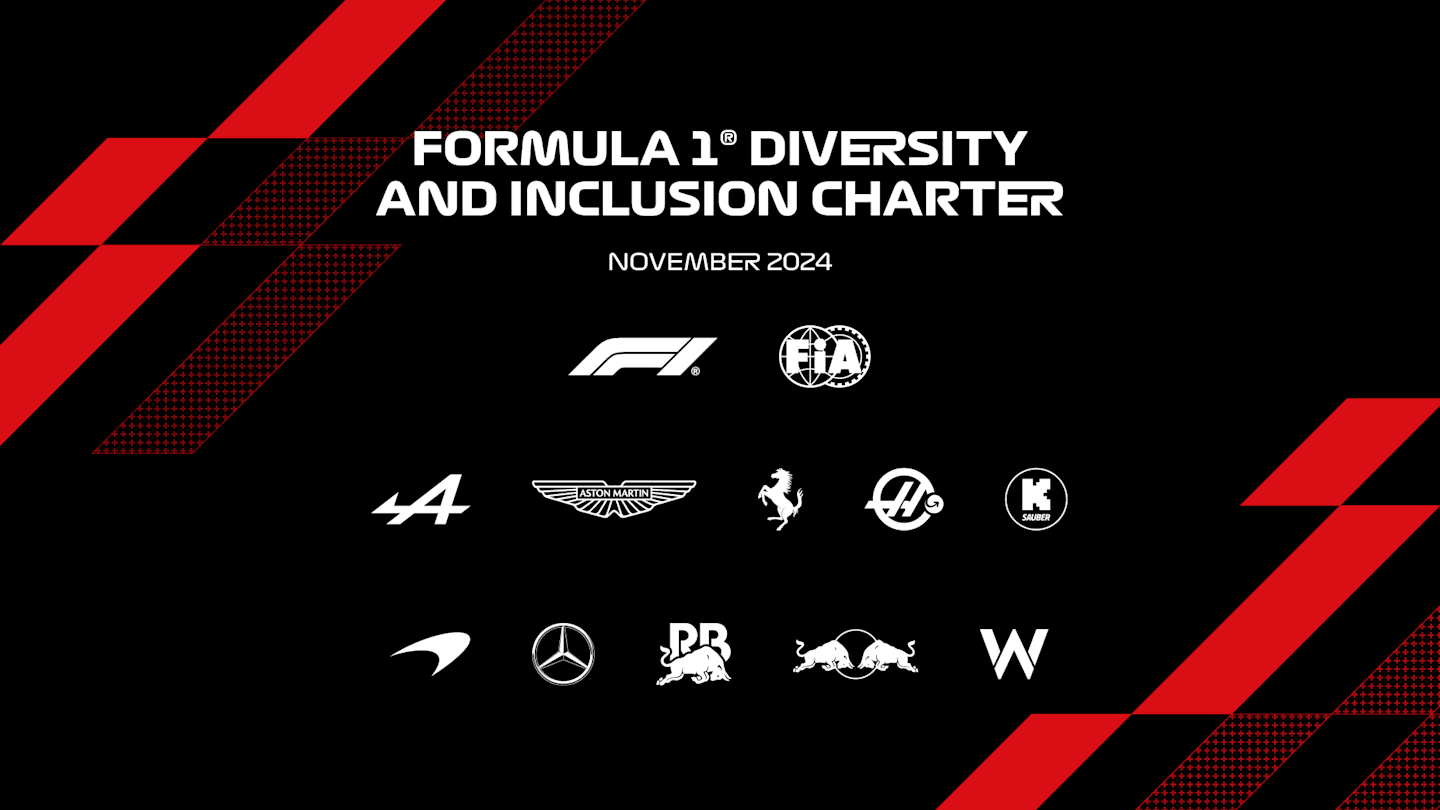
News
New Diversity and Inclusion charter agreed by all 10 F1 teams, Formula 1, and the FIA
Share

A new formal Diversity and Inclusion (D&I) charter has been agreed by all 10 F1 teams, Formula 1 and the FIA, having been created with support from the Royal Academy of Engineering, which, alongside Sir Lewis Hamilton, delivered the original report for The Hamilton Commission in 2021.
The charter is a result of recommendations from that report that the motorsport sector commits to improve diversity and inclusion across all organisations.
READ MORE: Mission 44 and Formula 1 launch collaboration to drive forward diversity in motorsport
The charter's implementation will be supported by Formula 1 partner Mission 44, the charity set up by Hamilton, which has recently released research that indicates programmes – including pledges, commitments, or codes – drive accountability.
As a sport that prides itself on its unrelenting high performance, Formula 1 recognises the importance that diversity plays in introducing new perspectives and ideas, and in driving innovation, culture, and business results.
New Diversity and Inclusion charter agreed by all 10 teams, Formula 1, and the FIA
While F1 is an environment of intense competition, there is wider recognition that inclusion cannot be achieved by working alone and requires collaboration. The charter is designed to make this a reality and produce positive lasting results.
The sport is committed to creating, supporting, and delivering on actions, measures, and outcomes, to build a more diverse and inclusive place to work.
Over recent years, every team and stakeholder in Formula 1 has acted and implemented initiatives to improve diversity, access, and opportunity within the sport.
At Formula 1, fully-funded engineering scholarships for underrepresented groups have been introduced, apprentice and intern schemes created, and F1 ACADEMY has been launched, to name a few key examples.
The charter is an important step in agreeing a set of clear joint principles to maintain momentum and continue to maximise diversity across Formula 1, and it sets out a collaborative approach to continue improvements in the months and years ahead.
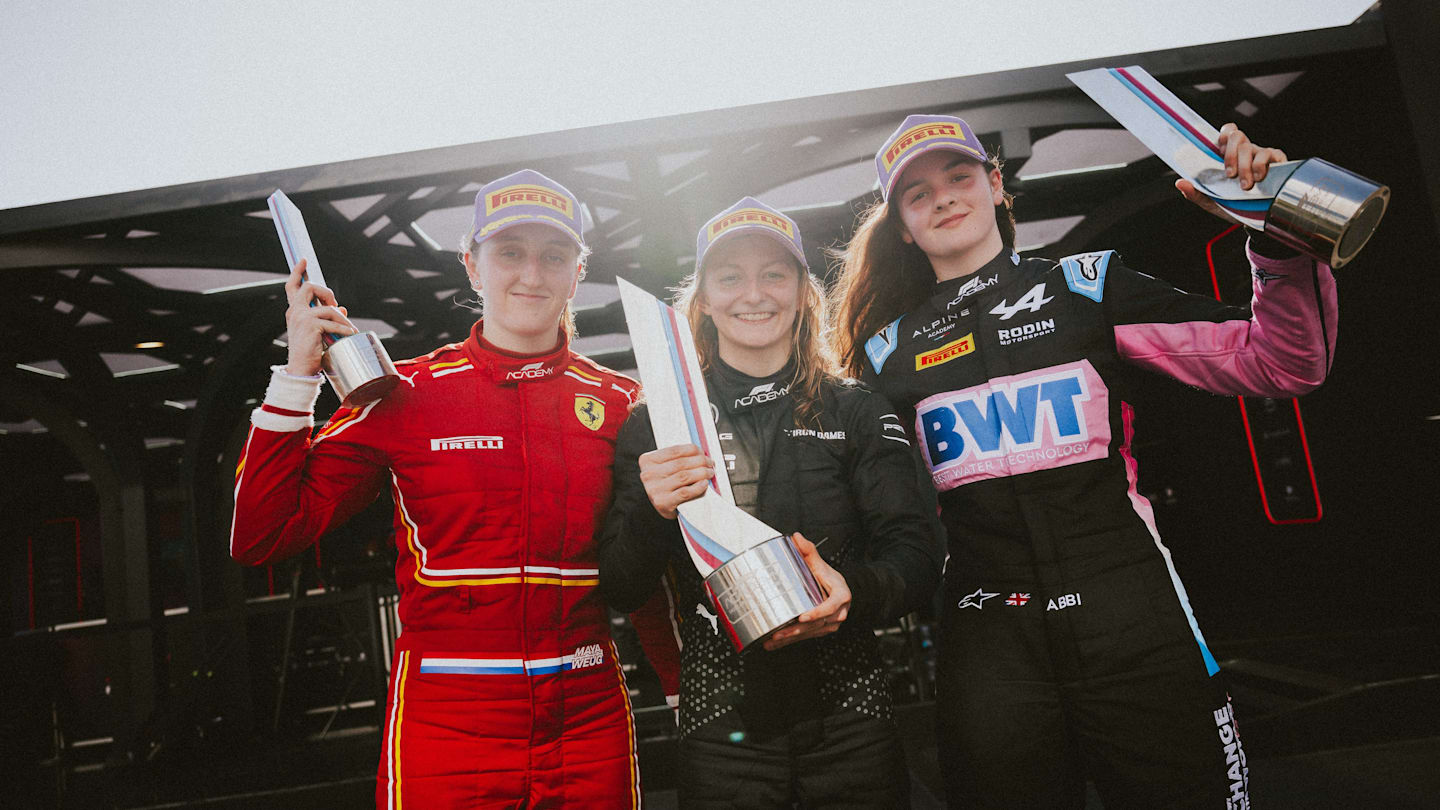
The all-female F1 ACADEMY returns for its third season in 2025, featuring 14 races across seven rounds – all on the Formula 1 calendar
The charter sets out the following vision and mission and four key pillars of focus:
The Vision
To enable anyone to access, contribute to, and enjoy global motorsport.
The Mission
Identify and remove barriers to attract and retain a rich diversity of people in our workplaces, improving our ways of working, and engaging with stakeholders to drive innovation.
Commitments – Four Pillars
Attract
Target and support initiatives that seek to attract underrepresented groups to motorsport. To support this effort, we will gather demographic data in an aligned way to improve our collective talent pipelines and recruitment practices.
Retain
We will put in place processes to mitigate bias in our organisations and create cultures of inclusion so a diversity of people can thrive in our sport.
Create
We will listen to and encourage all perspectives in the design, development, and delivery of our products and services, encouraging our supply chains to do this too.
Engage
We will communicate our commitment to D&I with our external stakeholders: listening, learning, and improving to deliver a better, more inclusive experience.
Currently, representatives from Formula 1, the FIA and all 10 teams work together as part of the Formula 1 Diversity and Inclusion Working Group and, as part of the charter, this will now evolve into an implementation group that will deliver more initiatives and further formalise the sport’s collaborative approach by introducing measurable and time-bound projects, and key performance indicators.
The impact of the F1 Engineering Scholarship Programme
Stefano Domenicali, President & CEO of Formula 1, said: “Our sport is rightly recognised for its elite performance and innovation, and we are clear that the only way to maintain and improve those exceptional standards is to welcome diversity of thought, ideas, and experiences.
"The sport is fiercely competitive, and we’re all committed to employing the very best talent. We know from The Hamilton Commission report that there are opportunities for us to work collectively to both find and nurture that talent, and across the sport significant change has already been put in place.
"The charter is the next important milestone on that journey, and we are all committed to making our sport more open and diverse.”
READ MORE: F1 launches global education programme ‘Learning Sectors’ with British Council
Mohammed Ben Sulayem, President of the FIA, added: “The diversification of motorsport is paramount to its continued success. Through ensuring equal opportunity for equal talent, increasing accessibility, and joining together in our commitment to uphold this charter, we will drive forward change.
"This landmark partnership between Formula 1, the teams, and our Federation signifies a united course of action which I am proud to be a part of.”
Dr Hayaatun Sillem CBE, Chief Executive of the Royal Academy of Engineering, said: “Formula 1 took the findings of The Hamilton Commission in 2021 seriously, and since then the sport has created a range of initiatives to increase diversity.
"This charter, which the sport commissioned us to create independently, sets a framework for progress and establishes commitment to both principles and action. It is a key step in F1’s ongoing efforts to improve access and performance, and we believe it will be a catalyst for even more positive impact and cross-sport working.”

RACE TICKETS - MIAMI
Don't miss your chance to experience the Miami Grand Prix...
YOU MIGHT ALSO LIKE
News Minor refinements to 2025 regulations agreed at F1 Commission meeting
Podcast F1 EXPLAINS: Ask an F1 Team Principal with Alpine boss Oliver Oakes
FeatureF1 Unlocked IT'S RACE WEEK: 5 storylines we're excited about ahead of the 2025 Miami Grand Prix
News ‘I was very proud on the pit wall’ – Stella recalls crucial moment of teamwork between Norris and Piastri’s Race Engineers in Jeddah
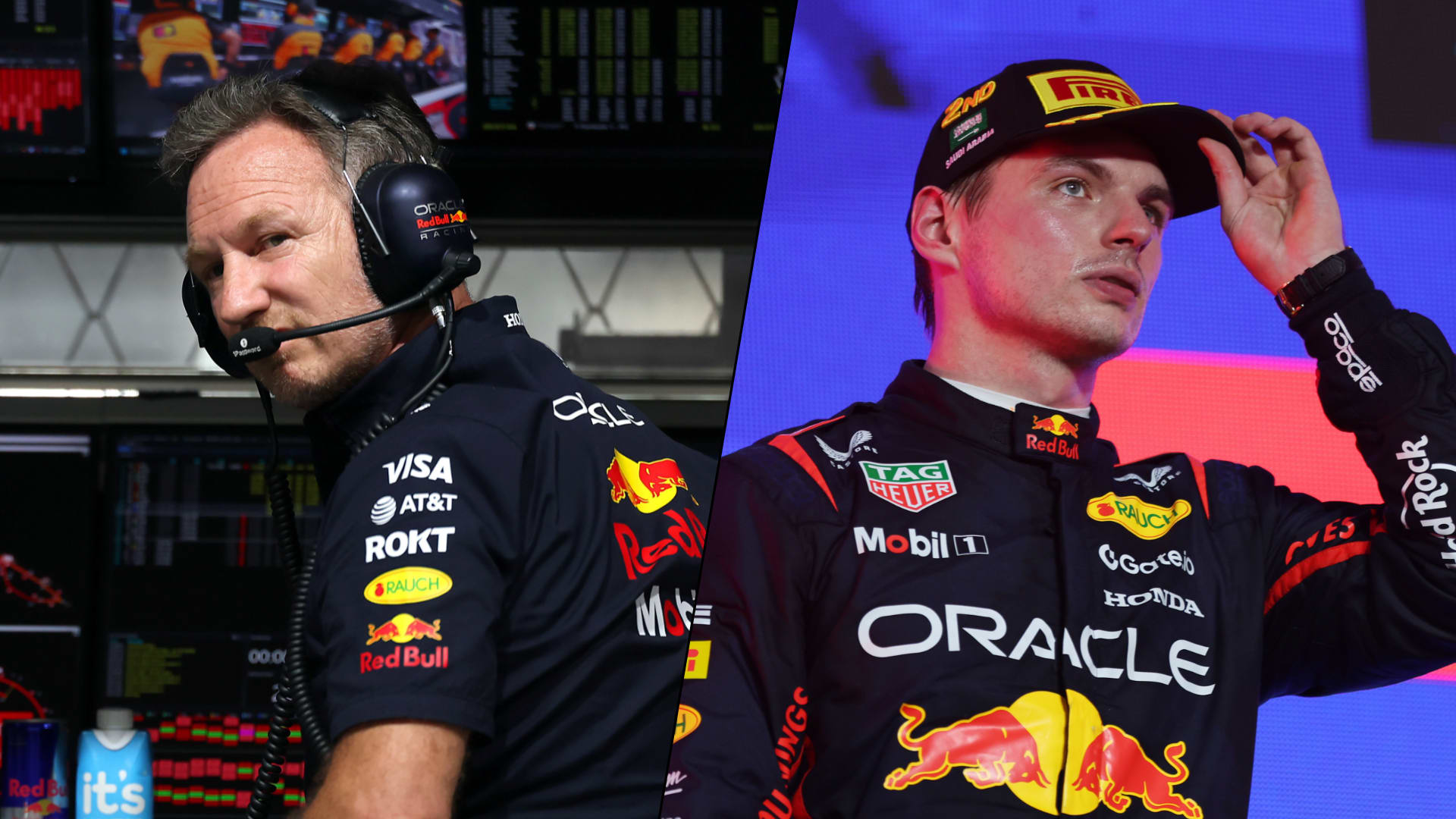
)
